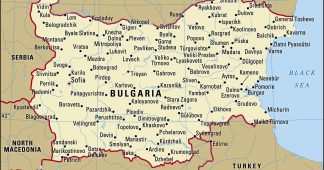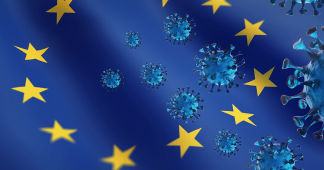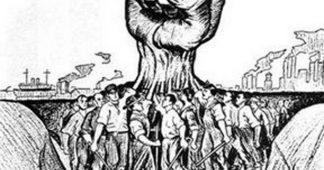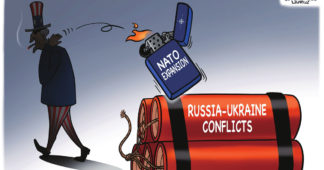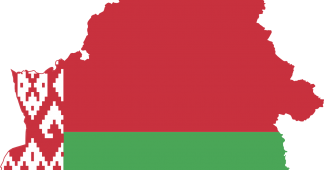By Prof. Zahari Zahariev (*)
The current international situation is characterized by growing instability, which contributes to the expansion of the scale of terrorism and radical extremism, the intensification of crisis phenomena in the world economy, and the intensification of the struggle for energy and other resources.
“COVID-19” and its consequences and the cold war turning into a hot one, only lifted the curtain on the crisis processes that began long ago in all areas of public relations – from the increasingly severe social imbalances and the inability of health care systems to respond to the needs of society, through the devastating role in ruining the state of market liberalism, as a balancer of public interests, to the deepening tectonic shifts of geopolitical layers, of economic security and, no less important, of ecological balance on the planet. However, all these “stumbling blocks” in the development, no matter how different at first glance the crisis situations appear, have one common root – existing social relations have reached the limit of their civilizational adequacy. The new phase of historical development, the outskirts of which humanity is approaching, definitely requires a new social contract. Capitalism has completely exhausted its historical resource, and neoliberalism, in all its manifestations, is indeed the end – not of history as a whole, but only of one of the pages that civilization is unfolding.
All this causes an increasingly sharp confrontation between the objectively necessary social changes and the status quo of power, associated with dominant centuries-old interests. The coronavirus pandemic practically signals an open clash of the forces driving these two trends. One of the paradoxes of the situation is that the forces of the status quo rely in this situation on the mechanisms of state power under their control. “COVID-19” has become a convenient excuse to increase its repressive functions. The influenza pandemic has grown into a pandemic of authoritarianism, and the ever-increasing game with nationalism has become a tool to counteract the objective processes of internationalization. Hence the sharp turn in the attitude of the ruling elites towards globalization as an engine of development. Its core creed in the context of the transition, that “global problems require global answers”, is becoming increasingly difficult to fit into the narrow confines of their selfish ambitions for power.
Unfortunately, the very fact of the weakness of many states just makes them an attractive sphere for conflicting clashes in the interests of geopolitical forces. This is manifested in their economy, in their politics, and eventually in military conflicts, including in the form of civil war. This is not happening without the intervention of today’s factors, it is connected with the efforts of the West to destabilize these states, separate them from Russia, use their inability to independently implement major integration projects related to Russia.
Everything is very complicated there, and in my opinion, it is very important that Russia gets back on its feet and defends its claims more confidently. The fact is that it is a great state and a superpower, and not a regional power, as they tried to present it in Washington and some other capitals of the Western world. It is a great force and should influence world processes. Russian leaders have no other choice.
Now there is a desire to restore balance. The first biggest mistakes towards Russia from the post-Soviet space were during the Yeltsin period, because the call to “Take matters into your own hands” actually meant: “It’s your business, take care of your problems.” At the same time, Yeltsin saw himself as a dictator, an authoritarian ruler of Russia, and it was very convenient for him that a bunch of boyars fussed around him. There were also mistakes after his departure from power. Where did they come from? Unfortunately, on the basis of the discrepancy between the strategic interests of the Russian state and the narrow economic interests of the Russian oligarchs, who very often in their selfish aspirations went against the interests of the people. Thus, a nutrient medium was formed for the anti-Russian virus and the anti-Russian mood.
Let’s take Ukraine. We have repeatedly spoken about Ukrainian nationalism, about Washington’s policy as a factor in the crisis in the country, but we have said little about the mistakes of Russia itself. If we objectively assess the situation, then it was prepared not without the help of Russian oligarchs, who helped bring this country to such a condition. One should not expect anything else given the weak traditions of statehood in Ukraine and the complex inter-ethnic, spiritual and other internal problems, the influence of Catholicism, on the one hand, and Orthodoxy, on the other, etc..
Such images went on to a surge of nationalism and various radical political movements. Why nationalism? Why do people search for some kind of stability? Where could they find it? And here comes the social reflex: the best defender of their interests is the national state. That is why more and more people cling to nationalism, patriotism and try to use them as a saving barrier to get out of this critical situation. And this trend is manifested today everywhere in the world. Under its pressure, the ideas of nationalism are perceived more and more in mass propaganda by both right and left parties. National populism is becoming part of our daily routine.
Therefore, despite the uncertainty of the situation, we can definitely say one thing – today’s military confrontation in its global course marks not only a turning point for our social, cultural and political life, but also for international relations, for all integration communities and for the whole global network of economic and political institutions that more or less maintain world security. The economic crisis processes, the forced wars are heralding new geostrategic and geopolitical cataclysms.
To the purely economic inconsistencies and the traditional raw material contradictions, all other global problems of our time come to the fore as difficult to resolve “conflict nodes”. Instead of uniting the efforts of humanity towards greater harmony and security, they, in contrast to normal logic, draw more and more new dividing lines in other matters. This, for its part, feeds national selfishness, imperial arrogance and religious intransigence. The lack of adequate tools to counteract these disastrous tendencies, brings to the fore the most explosive and, at the same time, the most inhumane factor in international relations – the politics of force. From an isolated phenomenon, military conflicts are beginning to turn into a daily routine. In due time this leads to a “chain reaction” of large-scale regional military conflicts. Against this background, the ideological and practical “impotence” of the UN is becoming more and more clear. The growing number of “elite clubs” on this base, such as the G-7, G-20, etc. not only cannot compensate for the collapse of security, but just the opposite, it generates additional antagonism and progressive instability in the modern world.
All this gives reason to accept that today’s structural crisis is only one of the manifestations of the civilizational transition of mankind. As we know from the history of each of these transitions, they have always been filled with blood and suffering, with destructive energy, which ultimately clears, albeit at a high price from a humane point of view, the ground for a new qualitative state of the social organism.
Everything that has been said so far, no matter how schematic it may be, gives me reason to conclude that today the world is more and more tangibly in need of a new paradigm of its development. This paradigm should be built, on the one hand, on the reformulation of the sacred for the past concept of “economic growth”, and on the other hand, on the new boundaries of our ideas for a “sustainable development”. The direction in which answers to this fundamental question should be sought is not so much in the field of pure economics, but in the social structure of society, in its higher morality and ethics.
In this regard, it is extremely important to find a basis for uniting all sound forces that are and potentially can be allies in maintaining and establishing peace on Earth, harmony and mutual understanding between peoples. Today, in the condition of open military confrontation, the planet is on the verge of a new world conflict. The flames of war on the territory of Ukraine, an increasingly insane set of sanctions actions by NATO and the EU against Russia, Belarus and a growing number of other countries threaten to return humanity to the most explosive years of the Cold War. It is significant that the world is once again divided by a new “Iron Curtain”.
For millions of Europeans, the time has come to abandon the so-called “new world order”, in which a negligible part of humanity will have the right to decide for everyone the issues of life and death, and the rest of the population has only one thing left – to obey. Liberal democracy (the last stronghold of the so-called “Western civilization”), which, along with human rights, was the only value that differed from the power of money, has already suffered irreparable damage.
So where is the way out of this situation? The exit was pointed out by one person, born more than 200 years ago and his name is Karl Marx. He wrote that a political crisis is a crisis of the impossibility of a peaceful transition in a new socio-political state. This is the moment when society, ordinary people do not want to live in the old way, but the political elites also cannot govern as before. Thus we come to a state that requires that we should, as he said, “destroy this world”. And what does that mean? It means that we must move into a new civilizational state. We must understand that an alternative on the basis of the existing “status quo” is impossible, that the destruction of this world and the formation of a new state of society are objectively required. And this means that we have reached the turning point of the need for a new social agreement, a new social contract, i.e. to build a new world and a new society, at the expense of the world in which we live.
We must define principles and values that are suitable for the transition from an unsustainable socio-economic organization – doomed to agony and death – to a sustainable society that exists in harmony with nature and the ecosystem. To a civilization of coexistence, which will develop with the support of humanitarian principles and therefore are democratic. These are the conditions for survival..
It’s time to remove the “monkey from the bridge” and, first of all, take away the START war button from it.
cisely in these crisis phenomena in world politics and in the economy that the voice of people’s diplomacy, the voice of every nation, must rise and become stronger.
It is necessary to unite reasonable and far-sighted politicians, historians, scientists, cultural figures and public figures who understand that different views on a particular problem do not interfere with the peaceful coexistence of countries and peoples and that, subject to mutual respect, a dialogue of states is possible using different civilizational development models.
We consider the diversity of peoples living on Earth to be the greatest value, each of which contributes to the development of world civilization: science, culture, technical achievements. Creative and cultural potential, spiritual knowledge and historical experience of each nation is an inexhaustible source of civilization development. Based on this diversity, respecting the spiritual ideals and cultural values of peoples, we strive to strengthen ties between people and countries, to offer a new format of international relations built on mutual respect and trust.
Realizing the need for new initiatives that can unite all sound forces for the sake of peace on Earth, we need radical changes in the field of international cohabitation.
At the basis of these changes, we must also put the question of building a new system of international communication, erected on the foundations of new principles of international law. Such an approach will be a positive reflection of the constructive development of a peaceful dialogue between peoples. The new system of international law should provide opportunities to better understand each other, to look at national traditions, to preserve spiritual and family values. It should provide an opportunity for mutual search for solutions to many issues of the spiritual renewal of society, which ultimately acquire a global character.
Today, when new realities dictate the agenda in the field of international relations, when the influence of non-governmental organizations on the formation of foreign and domestic policies has noticeably increased, when government officials increasingly listen to the demands of civil society when making decisions, there are broader prospects for the formation of qualitatively new interethnic , interreligious, humanitarian and new interstate relations. Obviously, it is possible to effectively counter common challenges and threats only by collective efforts in the spirit of joint responsibility.
(*) President of “Slaviani” Foundation, Bulgaria
We remind our readers that publication of articles on our site does not mean that we agree with what is written. Our policy is to publish anything which we consider of interest, so as to assist our readers in forming their opinions. Sometimes we even publish articles with which we totally disagree, since we believe it is important for our readers to be informed on as wide a spectrum of views as possible.

